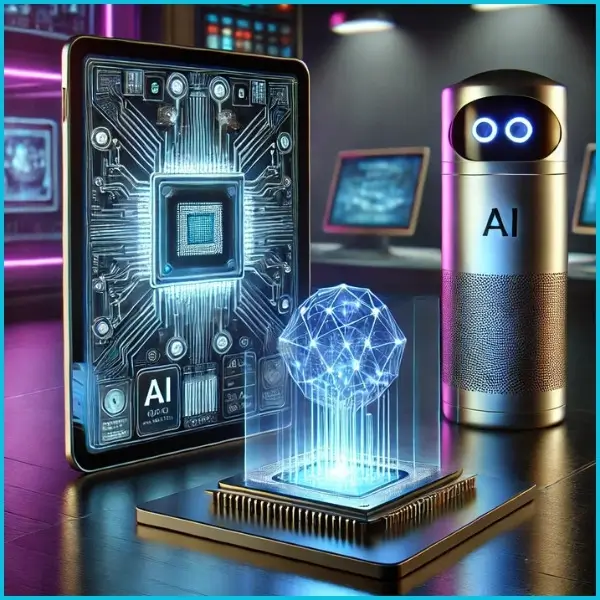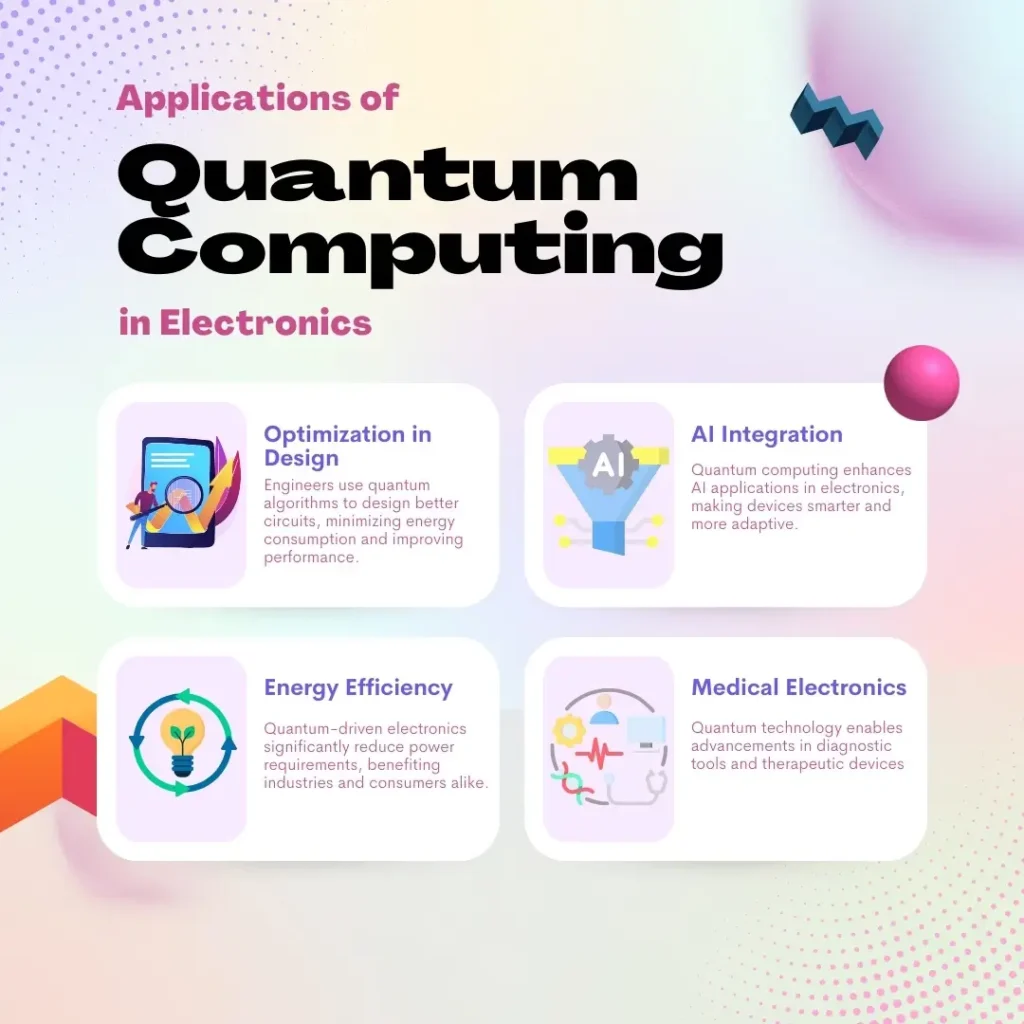Introduction
Quantum computing is transforming the electronics industry by offering a new way to solve complex problems that traditional computers struggle with. Unlike classical computers, which process information in bits (0s and 1s), quantum computers use qubits that can exist in multiple states at once—enabling far greater processing power.
This breakthrough is opening doors in fields like semiconductor design, signal processing, and advanced circuit simulations. Beyond electronics, the applications of quantum computing in healthcare are also gaining momentum, especially in areas like drug discovery, genomics, and diagnostic imaging. In this article, we explore how quantum computing is used in electronics, the technology behind it, and the potential it holds for the future of electronic devices.
In this article, we explore how quantum computing is used in electronics, the technology behind it, and the potential it holds for the future of electronic devices.
What is Quantum Computing?
Quantum computing is a cutting-edge field of science that uses quantum bits (qubits) to perform complex calculations far faster than classical computers. Unlike binary bits, which are limited to 0 or 1, qubits can exist in multiple states simultaneously, thanks to a property called superposition.
This unique capability allows quantum computers to solve problems in seconds that would take classical computers years to tackle.

How Quantum Computing Impacts Electronics
The integration of quantum computing in electronics has opened doors to advancements in:
- Circuit Design: Quantum algorithms optimize electronic circuit layouts for maximum efficiency.
- Semiconductor Development: Quantum materials are being used to create smaller, faster processors.
- Consumer Electronics: Devices like quantum smartphones and ultra-efficient quantum processors are on the horizon.
- Data Encryption: With quantum cryptography, electronic systems are becoming virtually unhackable.

Challenges in Quantum Electronics
Despite its potential, quantum computing faces hurdles such as:
- High Costs: Developing quantum systems requires significant investment.
- Scalability Issues: Building stable, scalable quantum processors remains a challenge.
- Complexity: Quantum computing concepts are difficult to implement in everyday electronics.
Future of Quantum Computing in Electronics
The future looks bright, with innovations such as quantum processors for personal devices and breakthroughs in AI-powered electronics. Experts predict that quantum computing will soon revolutionize sectors like healthcare, finance, and manufacturing.
Conclusion
Quantum computing is no longer just a theoretical concept—it’s becoming a real force in advancing electronics. From accelerating simulations in chip design to optimizing data handling in smart devices, the impact of quantum computing on electronics is both deep and far-reaching.
As the technology continues to evolve, we can expect smarter, faster, and more energy-efficient electronic systems that were previously thought impossible. Staying informed about these developments is crucial for anyone interested in the future of electronics and technology.